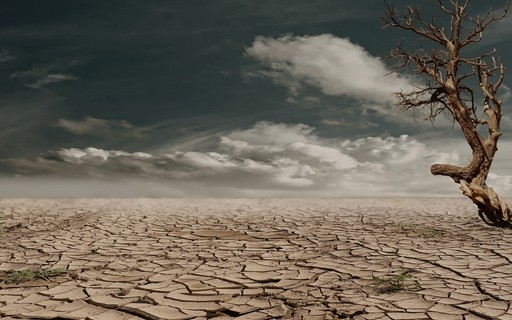

Scientists emphasize that the effects of climate change are already happening (Photo: Pexels)
A report by a United Nations (UN) scientific committee has warned that extreme heat waves that occur once every 50 years are now expected to occur once a decade due to global warming, while heavy rains and Drought also occurs more often. this Monday.
The report showed that the planet is already feeling the effects of climate change, as the average warming exceeds 1 degree Celsius. As the Earth warms, heat waves, droughts and torrential rains are likely to become more frequent and extreme.
This is the first time that the United Nations Intergovernmental Panel on Climate Change (IPCC) has determined the probability of these extreme events in a variety of situations.
The report found that heavy rains that used to occur once a decade are now 1.3 times more likely and 6.7% wetter than in the 50 years by 1900, when significant human-caused warming began.
A drought that occurs once in a decade may occur every five or six years.
The scientists emphasized that these effects of climate change are already here, citing events such as the Pacific Northwest heat wave that killed hundreds of people in the United States in June and Brazil’s worst drought in 91 years.
“The heat wave in Canada, the fires in California, the drought in Germany, the floods in China, the drought in central Brazil make it very clear that extreme weather is taking a very high toll,” said Paulo Artaxo, University of So Paulo (USP) Climate physicist and one of the report’s lead authors.
The future looks even bleaker, as warming means more frequent extreme events.
Heat waves show a greater increase in frequency with warming than all other extreme events. Occurring twice a century, heat waves could repeat with a warming of about 1.5 degrees Celsius every six years, a level the report said could be exceeded within two decades.
If the world warmed by 4 °C, as might happen in the event of large emissions, these heat waves would occur every one or two years.
Carolina Vera, another author of the report and climate physics from Argentina’s leading scientific research agency, the University of Buenos Aires and Coniset, said there is also an increasing possibility that multiple extreme weather events can occur at the same time.
For example, extreme heat, drought and strong winds – conditions that can trigger wildfires – are more likely to occur at the same time.
This article is part of the #UmSóPlaneta initiative, a consortium of 19 brands from Editora Globo, Adicos Globo Condé Nast and CBN. Search Project Here.



